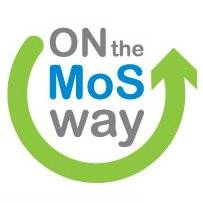“We will soon have a large logistics operator (ship-owner) in Setúbal, which will change the profile of the port,” announced Lídia Sequeira, president of the Port of Lisbon Administration (APL), SA, and the Ports of Setúbal and Sesimbra (APSS), SA, during a debate on port administration held last week at the 4th International Conference on Maritime Engineering and Technology (Martech) and the 15th Conference on Maritime Engineering and Technology organized by Instituto Superior Técnico ( IST) and the Order of Engineers.
Without giving the operator’s name, Lídia Sequeira made this reference in response to a moderator’s question about the challenges facing the national ports, adding that Portugal should “stop thinking about localized logistics operators, to think about the country and the national ports as a large global logistics platform”. According to Lídia Sequeira, “ports must be a segment of the global logistics platform”, for which “we have to attract the world’s largest logistics operators”. José Luís Cacho, president of the Administration of Ports of Sines and Algarve (APS), also in the panel, seconded the opinion of Lídia Sequeira. “Since about the year 2000, ports have evolved in such a way that they have made a great qualitative leap to the present day. Today we look at ports as large logistics platforms, integrated into an entire value chain, as a node within that chain. And that has a lot to do with the fact that the owners, who 10 or 15 years ago were pure and tough shipowners, are now also terminal operators,” he said.
At the national level, this has led to changes in the functioning of ports, notably with the entry of a major global operator in Sines, such as PSA, and now with Yilport in the port of Leixões, Lisbon and Setúbal. Keeping each port has its identity, José Luís Cacho understands that we should look at the national ports from the perspective of its integration in the Iberian Peninsula and admits that we will see the Iberian Peninsula, in turn, increasingly integrated into a global plan, where it will have a growing function as a gateway into Europe.
The president of the APL and APSS also recalled that in the port of Setúbal several challenges are being faced, related to the dredging of the bar channel and the north channel, with €25 million of financing port administration without recourse to credit and with the support of European funds. On the port of Sines, José Luís Cacho mentioned the great challenges for the new container terminal Vasco da Gama, for the construction (in the phase of environmental impact study), a tender will be launched later this year, and the expansion of Terminal XXI , within the framework of the Strategy for Enhancing the Competitiveness of National Ports, launched by the Government in 2016.
Also present in the panel was Joaquim Gonçalves, member of the Douro, Leixões and Viana do Castelo Ports Administration (APDL) with the port of Viana do Castelo and the port of Viana do Castelo, who admitted that the main objective of its administration is to improve accessibility in the ports of Leixões and Viana do Castelo, following the trend for the growth of vessels, “which is a concern of all ports”, as well as reduce some deficiencies in the Via Navegável do Douro.
He admitted that the port of Leixões, without a large margin for expansion, is a port conditioned by the growth of the ships, which is why it is preparing the extension of the outer breakwater, which will allow access to cargo ships 300 metres long, 40 metres of mouth and 13.5 metres of draft, which means with capacity for about 5,000 TEU. Something that worries the community of micro-companies linked to the surf of the beach of Matosinhos and to which the mayors is sensitive. Concerns that the APDL will have to deal with, particularly in terms of institutional communication, said Joaquim Gonçalves, because some of the concerns will not be right.
Another challenge of the port of Leixões is the use of the soil within the port area. According to him, it is being negotiated with Docapesca the possibility of this company to transfer part of its activity outside the port perimeter, keeping inside only the minimum necessary for its operation. “This is an ongoing issue with Docapesca,” said the APDL member.
Source: portseurope

